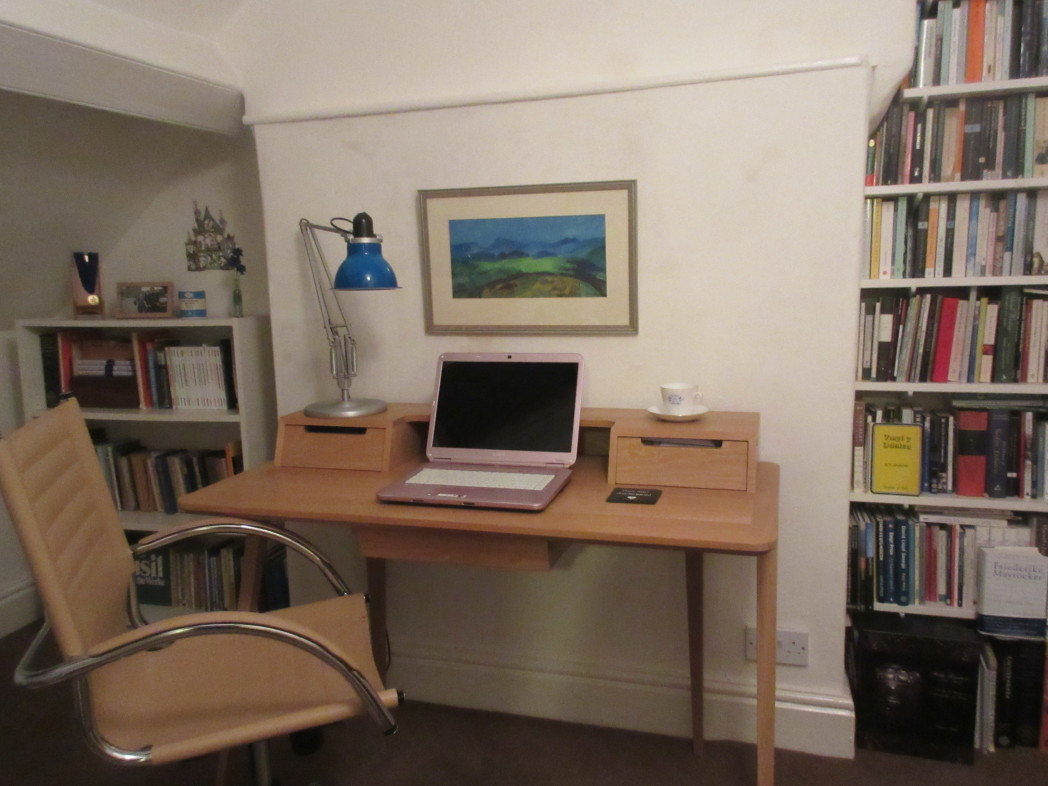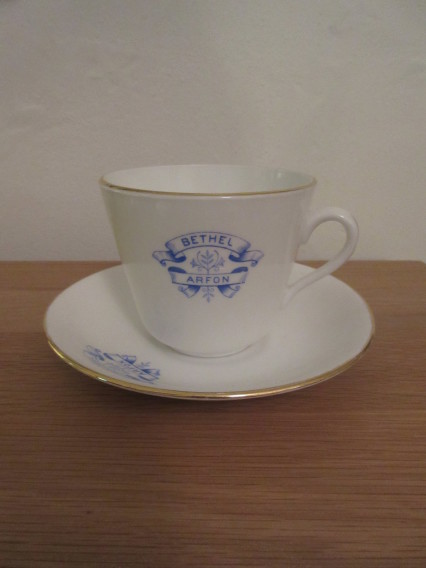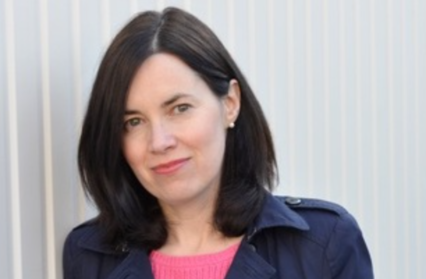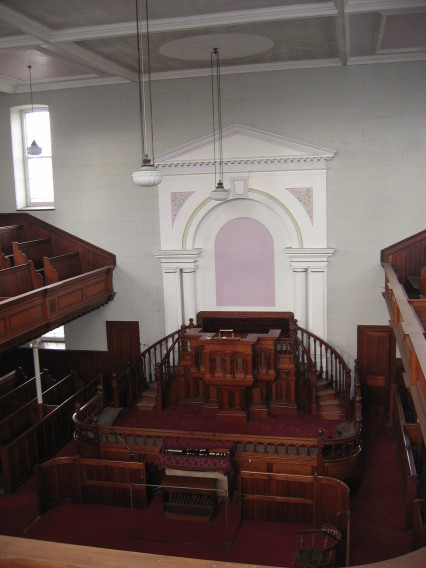Our series Writers’ Rooms delving into the personal space of top writers this week welcomes award-winning novelist, playwright and academic Angharad Price, author of O! Tyn y Gorchudd! (translated as The Life of Rebecca Jones), Tania’r Tacsi, and Caersaint. We are invited, through the room, back to the birth of Price’s love affair with language, back deep in the rhythms of her childhood Welsh chapel.

If this cup and saucer were a room,

it would look something like this.
I have the cup and saucer placed on my desk. They bear the name of our chapel, ‘Bethel, Arfon’, which also happens to be the village where I grew up, its original Welsh name, ‘Rhos Chwilog’ (‘Heath abounding with beetles’) giving way to the Hebrew, ‘Beth El’ (‘House of God’), soon after the chapel was established in 1810. This was the first of the village’s chapels, ‘Independent’ of denomination, its congregation, like the village itself, swelling as Dinorwic slate quarry expanded. A Calvinist and a Wesleyan chapel came later, though to us kids of the 1970s the differences signified as little as that between Hughes and Jones.
It was at Bethel chapel that I, like many of the village children, got to know God, made friends with Jesus, and became familiar with the Testaments’ range of myths, parables and gospels. I learned to draw a map of Israel long before I could draw Wales, and admired Joseph and David, say, before hearing of Llywelyn or Owain Glyndwr. It was here, too, that I experienced the physical pleasure of language: Sunday upon Sunday hearing the melodious and muscular words of the Welsh Bible, their meaning only dimly understood though I sensed their power, both dark and light. The undulating rhythms of the verses. Duw sydd noddfa a nerth i ni, cymorth hawdd ei gael mewn cyfyngder. The strange juxtapositions of abstract and concrete or the sudden exchanges between theology and material culture. Cyfiawnder. Ffiol. The frequency of imperative verbs being thrown from the pulpit – polite for the people, familiar for God – it was nothing to watch grown men standing there, groping for meaning through long, improvised sentences, some breathless with quarry dust, pleading with their creator for a word in response.
I sang the hymns until the passionate words became ingrained, moving with ease between major and minor keys (though always enjoying the minor more), and I acquired the discipline of prayer: the addressing of an absence, the stillness, the flat, interminable landscape that finally led to grace. My secretly open eyes would consider the chapel’s plain walls, the clean lines, the sparse ornamentation, the beam of sunlight coming in from outside, and it was then, I think, that I came to love that aesthetic. I see it in my cup and saucer now: the white starkness, the tinge of gold, its stylized ink-blue decoration with its emphatically verbal motif. Though ‘Made in England’, there is nothing, for me, that feels more Welsh.
The china was kept in the vestry, of course, and that is the room I remember with fondness; the room where the women gathered together, properly frocked, smiling, lining up the cups and saucers on a pitch-pine table, pouring the milk into the milky-white cups, pouring the pitch-pine coloured tea into the milk so that it came up, camel-coloured, to the golden rim and was taken through to the expectant, sugar-loading men.
I never touched the rim of those cups: the children’s drink was orange, our wafers panther pink, and by the time I’d reached tea-drinking age and was fully ‘received’ into Bethel, my faith – if faith is indeed the word – had gone elsewhere, somewhere outside the chapel walls where it’s been groping and pleading ever since.

Bethel chapel is now grade II listed and for sale at £95K. Its contents will soon be dispersed, as will its remaining members. In advance of the chwalfa fawr I asked for this cup and saucer. There was no room on my bookcase for God’s house itself.
For my secular children, it’s one of Mam’s few ornaments, a souvenir of her village, two miles away, next to the heath abounding with beetles. An empty cup and saucer she never uses, though she drinks tea like there’s no tomorrow.
It isn’t empty, though. Sometimes, when I forget why I write, or often just for the pleasure, I reach out from my desk, lift the cup and place it next to my ear. And I can still hear those words, swelling and subsiding like waves in a shell, melodious and muscular, abstract and concrete, dark and light, major and minor, full of passion and stillness, polite and familiar imperatives… And I listen to them, signposts in a flat, interminable landscape, addressing the absence in me.
Angharad’s Writers’ Rooms piece is a part of a Wales Arts Review series.













